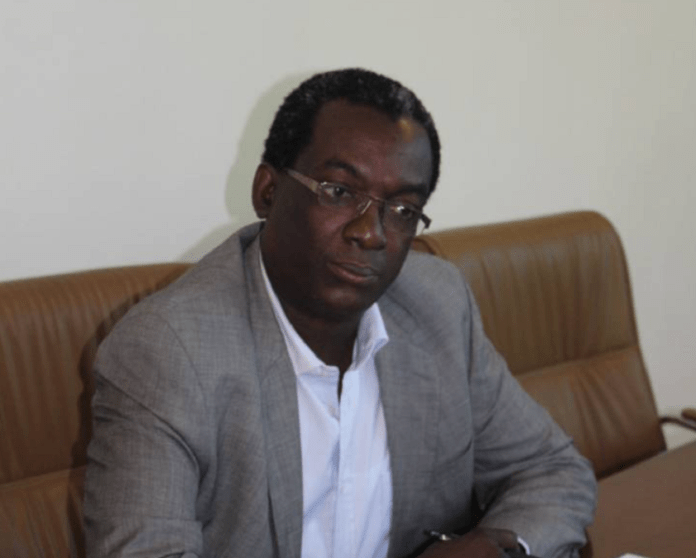by Jean Garry Denis
Port au Prince, Haiti
Friday, December 23, 2022 ((rezonodwes.com))–
Following Ambassador Lockward’s article entitled: The Dominican Republic is at War against Haiti, I wanted to carry out an essentially academic debate imbued with respect and cordiality for readers wishing to deepen the common history of the two countries in according to our insights and our respective criteria. Unfortunately the Ambassador considered my legitimate reaction to a statement by President Abinader as an offense. In this context, I cannot let this opportunity pass without bringing my clarifications not only to the Ambassador, but to the readers charmed by his seductive verb.
Even in a minority, I have always shown courage and honesty in assuming my positions. I only used a metaphor of unruly children to externalize my reaction, I regret this reading of the Ambassador which poisons the serenity of this productive debate. On the other hand, I reiterate my position of protest against the brutalities of the repatriation process, the irreverent and disrespectful character of the remarks of a good number of Dominican officials on Haiti, the declaration of the President saying that Haiti would be extremely rich if his magic worked. Mr. Ambassador, if in your logic, my reaction constitutes an offense, in mine, it is only a simple requirement of respect. Don’t worry, I’m not looking like many other politicians to garner any political capital. My objective is to see a sincere rapprochement established and to re-establish truths about the common history of the two peoples sharing the island.
Mr. Ambassador, with all the science we know about you, in your next speech on voodoo, I would advise you to broaden your horizons on the history of religions and the subtleties surrounding the concepts of spirituality and religion. More than a religion, voodoo is an animist spirituality aimed at harmonizing the four main forces of nature: earth, water, fire and air. This cosmogony has always believed in the principle of the materiality of spirit and the spirituality of matter. With quantum physics today we know that the particles of matter are not inert and have a soul, a thought, an intentionality with a great capacity to influence our spirituality. The symbolism of God in voodoo has always been approached from the angle of the phenomena of observation of nature.
All this literature aimed to lift the veil on voodoo, to talk about its journey and its philosophy, but above all to take the opposite view of your assertion that voodoo is a century-old Haitian creation formed of African rites and Catholicism. Naturally, one cannot deny the syncretism resulting from the meeting of African and European civilizations, but to speak of voodoo as a Haitian creation is archaic. It is a very strong millennial civilization in countries with African origins such as Santeria in Cuba, Condonmbe in Brazil, Palenques in Colombia. I take this opportunity to greet President Boric, who highlighted the spirituality of the Chilean Mapuches during his investiture.
Regarding the common history of the two countries, for your guidance Mr. Ambassador, I am not this type of nationalist prisoner of the past seeking to deny the reality of misery in which the Haitian people vegetate, far from me, my objective c is to restore the historical truths without haloing or minimizing the role of Haiti in this shared history. With that, I welcome your reminder of Nuñez de Carceres’ preference for an alliance with Gran Colombia, but that in no way alters the data on the differences in Santo Domingo at the time. Moreover, the Independence of Gran Colombia, was acquired thanks to the values of solidarity of the movement of 1804 with Francisco de Miranda and Simon Bolivar who stayed in 1805 and 1816 in Hauti. Unfortunately the triumph of these movements did not eliminate slavery, and disconcertingly, in 1826, Haiti was not invited to participate in the Congress of American Nations in Panama.
Regarding the contribution of Haitian solidarity during the Restoration War to Dominican fighters, especially Francisco de Rosario, one of the three fathers of the Dominican homeland, I do not consider this solidarity as an act of denial of his patriotism. We can differentiate ourselves without discriminating, moreover the exaltation of difference in this globalized world is a richness.
The Haitian revolution was a class struggle taking on the appearance of a race war, since the masters were white and the slaves black. I never thought that slavery was a question of color, since the whites called 36 months or Engaged were also subject to almost the same oppression. Your reminder of the slavery of whites is nothing new to me, except a way to diminish the unique scope of the 1804 movement that you reduced overnight to small knives. I can’t imagine calling you a Leftist, so this duel mentioned in your previous article would never have taken place, but however, suffer that I highly recommend the method of Historical Materialism, if you want to better understand the Haitian Revolution.
Finally, I want to reaffirm that President Abinader is at a historic crossroads to play a prominent role in the resolution of the Haitian crisis and this, in the logic of the strategic interests of his country by relaying the international sanctions against the corrupt oligarchs who have destroyed the Haitian economy and by energizing responsible cooperation with Haitian security forces to combat gangs. The development of Haiti will certainly contribute to the prosperity of the Dominican economy and vice versa. Unfortunately, the brutal and flagrant violations of international conventions relating to the rights of migrants have tarnished the prestige of President Abinader.
There is still time to fix it!
Jean Garry Denis
The author is Executive Director of the Haitian Institute of Public Policy Observatory (INHOPP)
French translation of the article published on Listin Diario as of Friday, December 23, 2022

